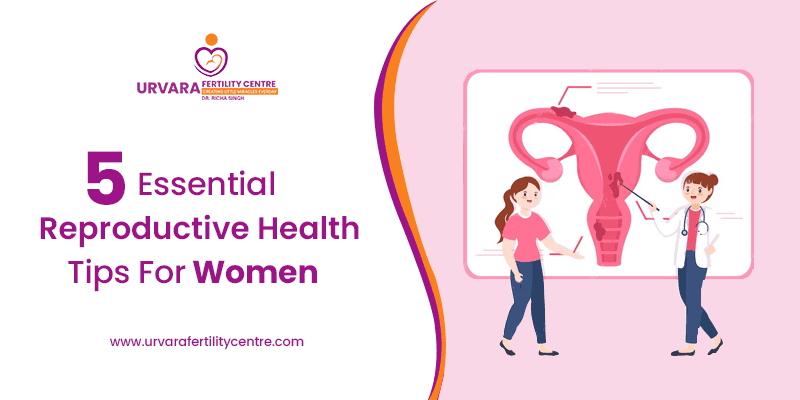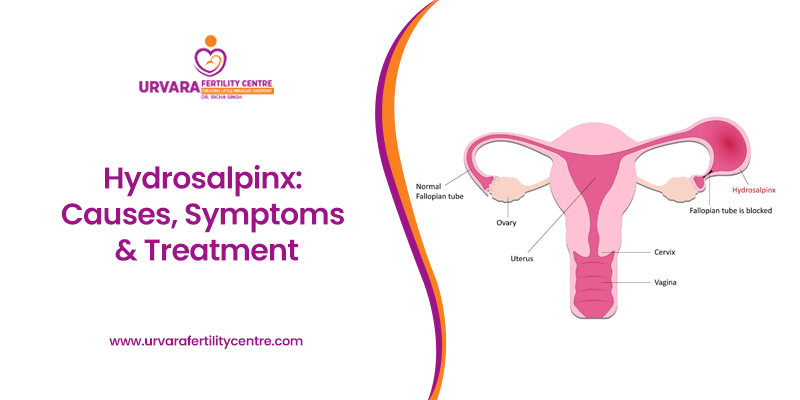Taking care of reproductive health is important for every woman. This means understanding your body, making informed choices, and adopting habits that support your overall well-being. It doesn’t matter whether you’re thinking about starting a family, there are essential tips to help you maintain a healthy reproductive system. This blog, “5 Essential Reproductive Health Tips for Women”, provides practical advice for every stage of life. From understanding your menstrual cycle to choosing the right contraceptive, these tips have been researched to help you make the best decisions for your health.
By following these guidelines, you can ensure that your reproductive system stays healthy and functions optimally. Read on to discover simple and effective ways to take responsibility for your reproductive health.
The Basic Reproductive Health Tips For Every Women
1. Maintain a Balanced Diet
Eating a balanced diet is important for good reproductive health. What you eat can affect your hormones, menstrual cycle, and fertility. Here are some simple dietary guidelines to follow:
- Fruits and Vegetables: These foods are rich in important vitamins and antioxidants that help reduce stress in your body. Try to eat at least five servings every day.
- Whole Grains: Foods like brown rice, oats and whole wheat bread are rich in fiber and help keep blood sugar levels stable.
- Lean Proteins: Include lean proteins like chicken, fish, beans and legumes. These help build and repair tissues, including reproductive organs.
- Healthy Fats: Omega-3 fatty acids found in fish, flaxseed and walnuts are important for hormone production. It’s best to avoid trans fats and saturated fats as they can mess up your hormones.
- Hydration: Make sure you drink plenty of water to keep your body hydrated. Staying hydrated helps your body make enough cervical mucus, which is important for fertility.

2. Regular Exercise
Exercise is really important to keep your weight under control, which is extremely important for your reproductive health. Here’s why exercise is good for you:
- Weight Management: It is important to keep your weight within a healthy range to keep your periods regular. Being too thin or too heavy can mess with your periods and make it harder to have children.
- Improved Circulation: Exercising makes your reproductive organs work better by increasing blood flow to them.
- Stress Reduction: Doing exercises like yoga and Pilates can help you feel less stressed and anxious, which is good for your reproductive health.

Every woman should get 30 minutes of light exercise, such as brisk walking or swimming, most days of the week.
Read Also:- Know Everything About IVF Cycle
3. Regular Medical Check-ups
It’s important to get regular checkups and screenings for your reproductive health. These tests help find problems early and prevent them. Some important tests include:
- Pap Smears: Cervical cancer can be detected early with regular Pap smears. If you are a woman ages 21 to 65, you should have a Pap smear every three years.
- STD Screenings: It’s really important to get regularly tested for STDs, especially if you have more than one partner. Early detection can prevent serious complications.
- Breast Exams: Getting regular self-examinations and mammograms can help detect breast cancer early.
- Fertility Assessments: If you want to have a child, taking fertility tests can tell you important things about your ability to get pregnant.

4. Practice Safe Sex
It is really important to practice safe sex to avoid STDs and unplanned pregnancies. Here are some easy tips to follow:
- Use Condoms: Condoms help prevent many STDs and also prevent unnecessary pregnancy.
- Communication: Talk openly about sexual health with your partner before starting sex. Make sure you both get tested for STDs.
- Regular Testing: Even if you’re only with one person, it’s still important to get regularly tested for STDs. Some infections do not have visible symptoms, so it is important to take care of your health.
Also, you should consider getting vaccinated against diseases like HPV (human papillomavirus), which can cause cervical cancer.
5. Manage Stress and Mental Health
Your mental health greatly affects your reproductive health. Chronic stress can lead to hormonal imbalance, irregular menstruation and reproductive problems. Here are some ways to manage stress:
- Mindfulness and Meditation: These can help reduce your stress. Spend at least 10 minutes every day in a quiet place, focusing on your breathing and clearing your mind.
- Counseling and Therapy: If you are struggling with stress or mental health issues, consider talking to a therapist. They can help you find ways to cope and give you emotional support.
- Balanced Lifestyle: Make sure you maintain a good work-life balance. Spend time on hobbies, relax and be with loved ones.
- Sleep: Getting enough sleep is important for your body to recover and function well. Try to sleep 7-9 hours every night.

Conclusion:
In conclusion, taking care of your reproductive health is important for every woman, no matter what stage of life you are in. By following these essential reproductive health tips for women, you can keep your reproductive system healthy and well-functioning. Eat a balanced diet, exercise regularly, get medical checkups, practice safe sex, and manage stress. These habits will support your overall well-being and help prevent potential problems.
If you have any concerns or need personal advice, consider visiting an Urvara Fertility Centre. The experts there can provide guidance and support for all your reproductive health needs. Remember, taking proactive steps now can make a big difference to your future health. Stay informed and take responsibility for your reproductive health today.






